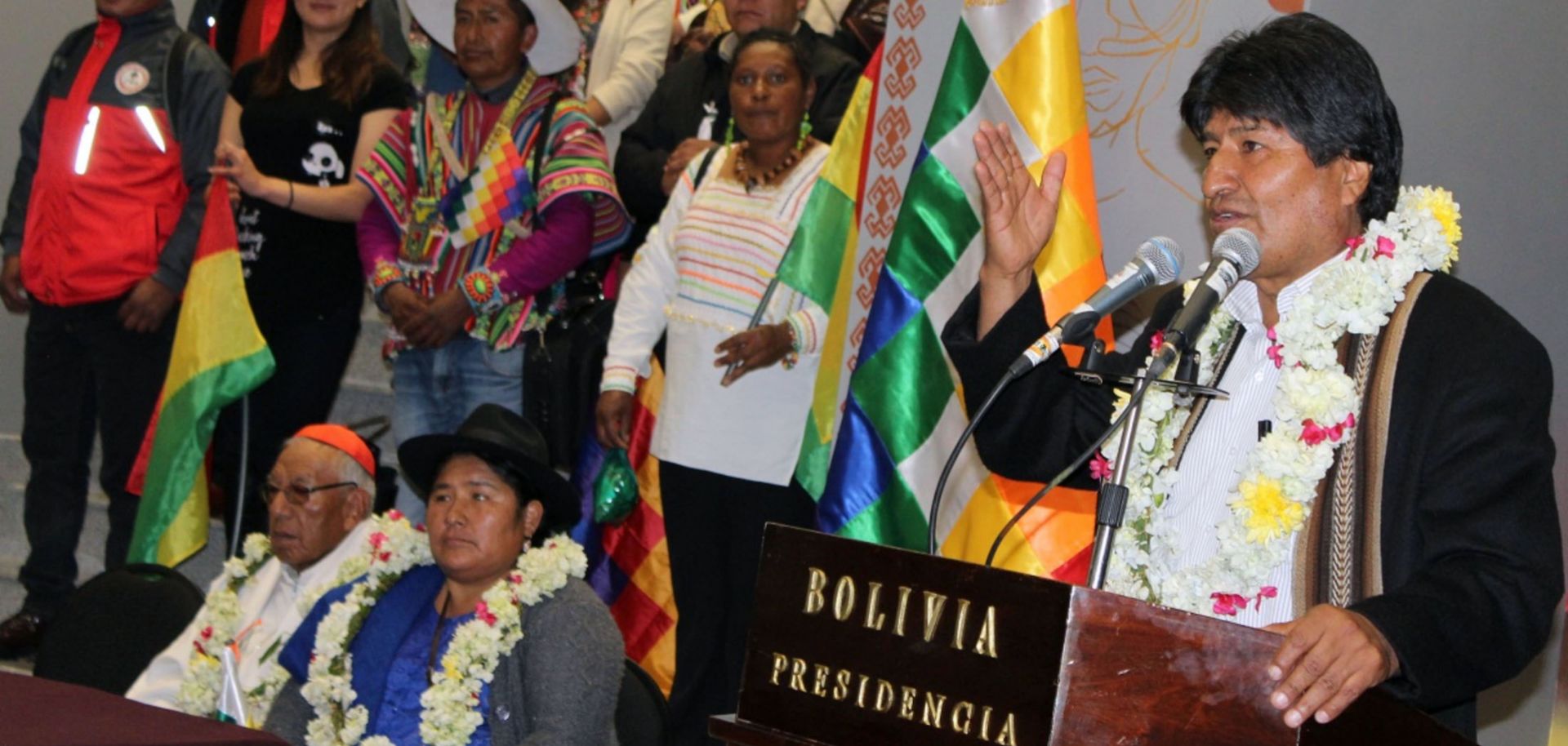ASSESSMENTS
For a Growing Number of Voters in Bolivia, Their President Is Overstaying His Welcome
Sep 20, 2018 | 09:00 GMT

Bolivian President Evo Morales speaks during inauguration ceremonies for the new presidential palace in La Paz on Aug. 9, 2018. Public resistance to the once immensely popular Morales is rising, fueled in part by his decision to thwart presidential term limits and seek a fourth term next year.
(AIZAR RALDES/AFP/Getty Images)
Highlights
- Bolivian President Evo Morales will run for a fourth term next year despite losing a 2016 constitutional referendum that would have removed presidential term limits.
- The opposition to Morales' re-election may not prevent him from winning the presidency again, but a close electoral result will likely drive unrest.
- A wave of protests by voters opposed to Morales would risk significant nationwide disruptions to business operations, while a violent government response to protests would raise the risk of targeted financial sanctions from the United States.
Subscribe Now
SubscribeAlready have an account?
